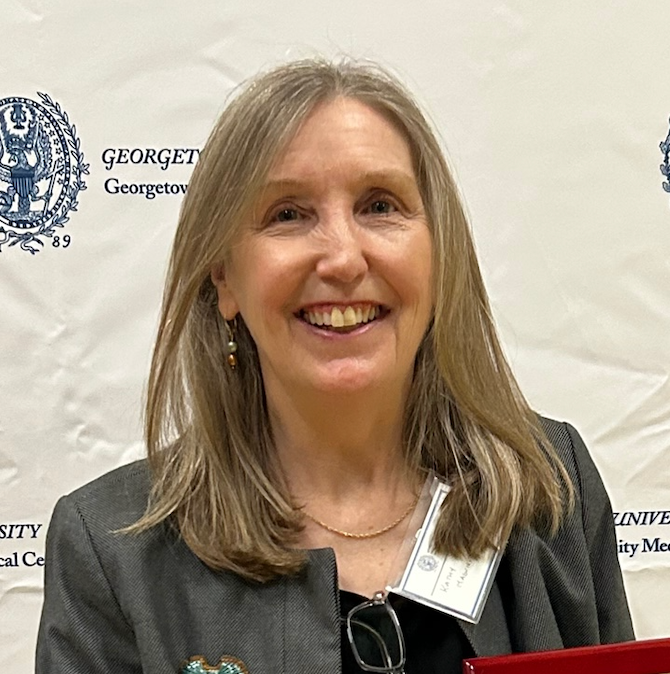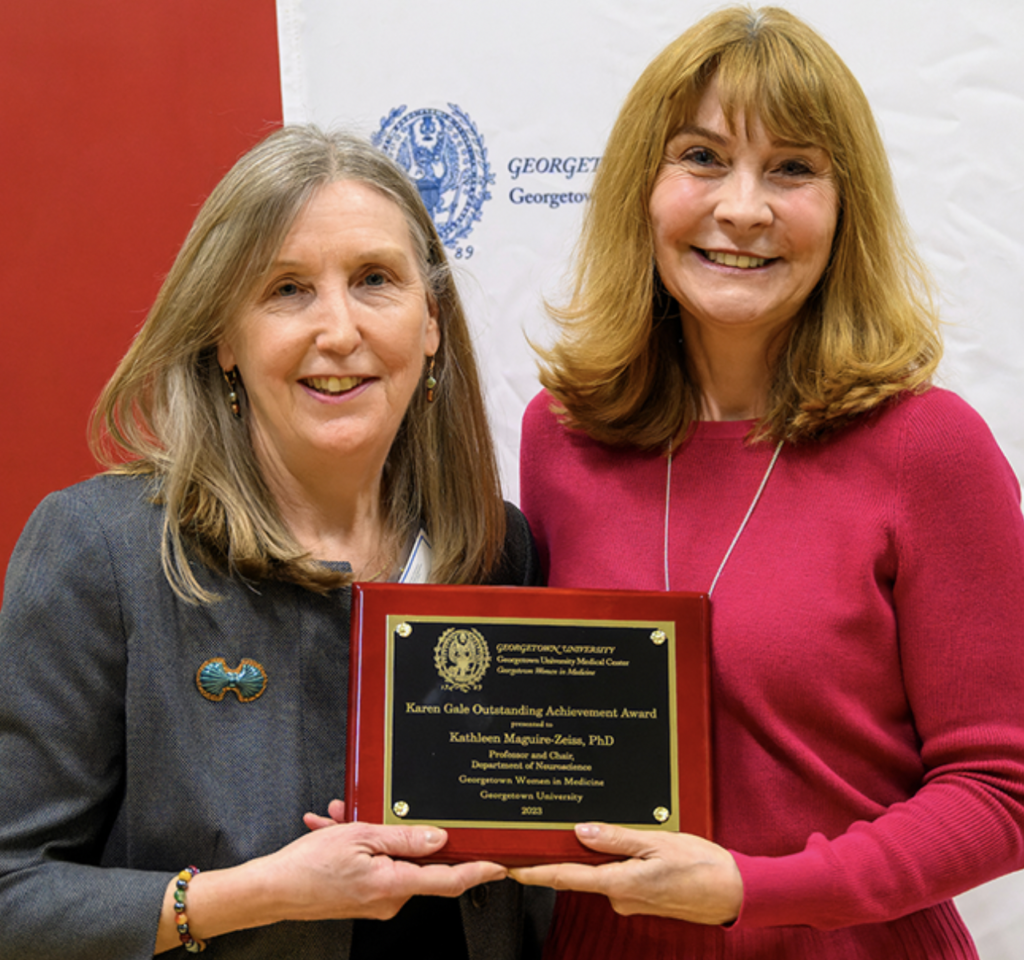Kathleen Maguire-Zeiss, PhD

Professor & Department Chair
PhD, 1987, Pennsylvania State University (Pharmacology)
Research Building, Room EP-04B
Phone: 202.687.2791
E-mail: km445@georgetown.edu
Dr. Maguire-Zeiss’ laboratory aims to understand the molecular mechanisms involved in progressive neurodegenerative diseases like Parkinson’s disease and HAND. The laboratory focuses on glial-directed innate immune responses and the effect of inflammation on neuronal health and function. By investigating how glial cells respond to chemokines/cytokines and misfolded proteins, specific signaling pathways are identified and novel therapeutics are subsequently identified and tested. For example, the Maguire-Zeiss lab demonstrated that the Parkinson’s disease relevant protein, misfolded alpha-synuclein, increases oxidative stress and alters neuronal membrane conductance. This group also demonstrated that this pathologic protein directly interacts with toll-like receptors on microglia inciting a proinflammatory response in these cells. Importantly, toll-like receptor antagonists attenuate this inflammatory response. Using primary cultures, acute brain slices, and mouse models the Maguire-Zeiss lab is helping to decipher the molecular events important for the pathogenesis of disorders like Parkinson’s disease and HAND in an effort to discover novel therapeutic approaches for these debilitating diseases.
GWIM Recognizes Exceptional Women Faculty Members

At the Georgetown Women in Medicine (GWIM) Awards Ceremony and Reception, attendees honored women faculty members who have dedicated themselves to mentorship, research, education and service throughout the medical center.
Karen Gale Outstanding Achievement Award
Awarded to: Kathy Maguire-Zeiss, PhD
Professor, Department of Neuroscience
Unraveling the Mystery of A-Snuclein in Neurodegenerative Disease and Reversing its Course
“We have made important progress in understanding how a-synuclein sets up the chronic brain inflammation that is a hallmark of these diseases,’ says Kathleen Maguire-Zeiss, PhD, associate professor in the department of neuroscience at Georgetown and the study’s senior author.”
GUMC’S Kathleen Maguire-Zeiss Mentors Parkinson’s Disease Summer Fellow
“Forming and investigating novel theories is what makes lab work truly exciting for me, because I have the opportunity to make biological discoveries that could positively impact the lives of people with Parkinson’s.’ And to that end, Davenport says, ‘Dr. Maguire-Zeiss has been a phenomenal mentor.”
